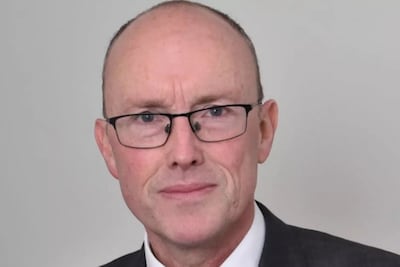An official definition of Islamophobia would present a risk to free speech, and plans to introduce one should be ditched, the UK government’s adviser on terror laws has said.
Jonathan Hall, the independent reviewer of terrorism legislation, said a definition would not protect Muslims from hatred.
Former Conservative attorney general Dominic Grieve was appointed by Deputy Prime Minister Angela Rayner in February to lead a review into creating a new definition of Islamophobia, amid an increase in anti-Muslim abuse.
The definition will guide the government and other bodies regarding discrimination against Muslims but will not have a statutory basis.
The move has raised concern that it may act as a de facto blasphemy law, stifling criticism of a religion.
Speaking to a meeting of the Counter Extremism Group, Mr Hall said: “I am against an Islamophobia definition because it’s directed at a thing, at religion, rather than an anti-Muslim hatred law, which is about protecting people.”

Mr Hall, a leading barrister, said he is “very conscious about the free speech debate” but is “not an absolutist” and supports the Online Safety Act aimed at protecting children from harmful content.
He cited the arrest of comedy writer Graham Linehan at Heathrow Airport for tweets as an example that there “appears to be a sort of degree of zealousness among some parts of law enforcement”.
“And I suppose at the moment I wouldn’t want to entrust something too spongy or inaccurate when it comes to [free] speech and expression with the authorities.”
Tell Mama, which monitors anti-Muslim hate crime, has recorded its highest number of reports since it was founded in 2011, with men being targeted more than women for the first time.
It has attributed the rise to the war in Gaza and last summer's riots in Britain, in which mosques were attacked and set on fire.
The All-Party Parliamentary Group on British Muslims proposed a new definition of Islamophobia in 2019 but there has been no agreement on the issue.
Concerns have been raised about the transparency of the process, including the fear that it could be hijacked by extremists who want to shape the definition to suit their own ends.
Fiyaz Mughal, the founder of Tell Mama, which had its funding cut by the government in March, told The National that defining Islamophobia could turn out to the counter- productive.

“The definition of Islamophobia being secretly worked upon by a small, hand-picked group of people can have really impactful consequences on counter-extremism work in the UK,” he said.
“We know that Islamist groups and those affiliated with Muslim Brotherhood front groups and activists may well use it to stifle debate and free discussion on counter-extremism strategy.
“We don’t need a definition overlooked and reviewed by five people that can affect a nation. We need better implementation of existing laws.”
He said Muslims have a duty to tackle extremism but there are some in the community who have “swallowed the toxic narrative that tackling Islamist extremism automatically means being prejudiced to Muslims”.
Mr Mughal also questioned the motives of the Labour government in setting up the working group on Islamophobia.
“The definition is a red herring and been used by this government to strengthen favour with some parts of Muslim communities.” he said.



